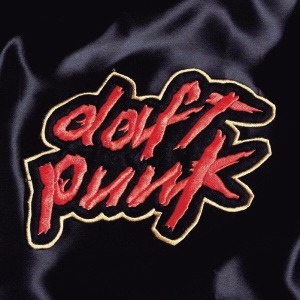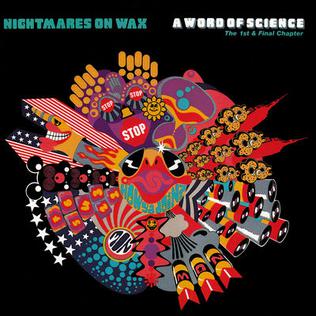
Richard "Richie" Hawtin is a British-Canadian electronic musician and DJ. He became involved with Detroit techno's second wave in the early 1990s, and has been a leading exponent of minimal techno since the mid-1990s. He became known for his recordings under the Plastikman and F.U.S.E. aliases. Under the latter, he released his debut album Dimension Intrusion (1993) as part of Warp's Artificial Intelligence series.
Deep house is a subgenre of house music that originated in the 1980s, initially fusing elements of Chicago house with the lush chords of 1980s jazz-funk and touches of soul music. Its origins are attributed to the early recordings of Larry Heard, including his influential track "Can You Feel It".

Telegram is the first full-length and second overall remix album by Icelandic musician Björk, released on 25 November 1996. The album is a collection of remixes of several tracks from her album Post, which had all previously appeared as B-sides of the UK versions of the singles off Post, except the "Enjoy" remix which was previously unreleased. The cover was shot by Japanese photographer Nobuyoshi Araki. All of the songs on Post were remixed, excluding "The Modern Things" and "It's Oh So Quiet". The collection also included one new song entitled "My Spine" which was originally slated to appear on Post but was pushed out by "Enjoy", becoming the B-side to the UK "It's Oh So Quiet" single instead. The album has sold 228,000 copies in US according to SoundScan.
Progressive house is a subgenre of house music. The progressive house style emerged in the early 1990s. It initially developed in the United Kingdom as a natural progression of North American and European house music of the late 1980s.

Chris Liebing is a German techno DJ, music producer and radio host and the founder of the record label CLR.

Carl Craig is an American electronic music producer, DJ, and founder of the record label Planet E Communications. He is known as a leading figure and pioneer in the second wave of Detroit techno artists during the late 1980s and early 1990s. He has recorded under his given name in addition to a variety of aliases, including Psyche, BFC, and Innerzone Orchestra.

Homework is the debut studio album by the French electronic music duo Daft Punk, released on 20 January 1997 by Virgin Records and Soma Quality Recordings. It was later released in the United States on 25 March 1997. As the duo's first project on a major label, they produced the album's tracks without plans to release them, but after initially considering releasing them as separate singles, they considered the material good enough for an album.
Novamute Records is the electronic dance music subsidiary of Mute Records, which was started in 1992. The label's staff included Mick Paterson (promotions), Pepe Jansz (A&R), and producer Seth Hodder, and it was originally set up to give UK releases to white label 12-inch singles and imports. In the United States it was distributed by Tommy Boy Records while the Mute parent label was distributed by Elektra Records.
Luke Slater is an English electronic musician, DJ and record producer, who has concentrated on techno since the beginning of the 1990s. He achieved break through commercial success with his tracks "Love" (1997) and "All Exhale" (1999).
Dave Angel is an English techno musician. Angel was born in Chelsea, London, England. He is the son of a London-based jazz musician, and the elder brother of rapper Monie Love. He had an unorthodox musical education; his father influenced him deeply, as did his friends and his environment, including the radio. He listened not only to Miles Davis and Charlie Parker, but also to soul music and funk. Even though he was playing instruments at 14 years old, including percussion, his musical development was not easy or straightforward.

Jochem George Paap, known by his stage name Speedy J, is a Dutch electronic music producer based in Rotterdam. His breakthrough came with the release in 1992 of the minimal techno track "Pullover". He released music as part of Warp Records' Artificial Intelligence series in the 1990s, including his debut LP Ginger (1993).

TNT is the third studio album by American post-rock band Tortoise, released in 1998 by Thrill Jockey. After Jeff Parker joined the band in 1996, Tortoise recorded TNT over the course of a year with drummer John McEntire acting as producer, editor and mixing. Taking influence from their remix material of the 1990s, the band recorded the album using hard disk technology in a "forward-then-back" approach, with members individually adding parts to tracks at different stages until the tracks were completed. As with previous albums, the band members also shared instrumental roles.
Peacefrog Records is a British independent record label based in London, England. The label produces releases in many different styles of electronic music, as well as branching out into folk and indie artists such as José González, Nouvelle Vague and Little Dragon. The label was started by Pete Hutchison and Paul Ballard in 1991. After the Lodger 303 EP, Ballard withdrew from Peacefrog Records. The record label subsequently released a number of techno records, by artists including Luke Slater, Moodymann and Suburban Knight.

Robert Hood is an American electronic music producer and DJ. He is a founding member of the group Underground Resistance as a 'Minister of Information' with Mad Mike Banks and Jeff Mills. He is often considered to be one of the founders of minimal techno. In 1994, Hood founded the minimal techno label M-Plant in Detroit.

Ginger is the debut studio album by Dutch electronic music producer Speedy J. Released via a joint deal between Plus 8 and Warp in September 1993, the album was the sixth release in Warp's Artificial Intelligence series, which focused on "electronic listening music" by different artists. It peaked at number 68 on the UK Albums Chart and remains Speedy J's most successful album there.

A Word of Science is the debut studio album by British electronic producers Nightmares on Wax. Released by Warp Records in September 1991, it is the act's only album as a group before it became a solo vehicle for George Evelyn. Evelyn nonetheless recorded and produced the album alone, incorporating samples and elements from demo tapes he made in the late 1980s. Although Nightmares on Wax debuted with two well-received techno singles in 1989-1990, A Word of Science is eclectic and largely moves the act towards a more mellow style influenced by funk, soul and hip hop, while still incorporating techno and house styles.

Theo Parrish is an American DJ and record producer based in Detroit, Michigan, and known for his genre-spanning DJ sets and unconventional house productions. He is an owner of the Sound Signature record label, and a member of the group 3 Chairs.

Jessica 6 is the electronic pop performing alias of Nomi Ruiz which began as a Brooklyn-based Nu-disco and R&B trio that formed after helping put together the Hercules and Love Affair live show. Formerly known as Deep Red, their name was taken from the lead character of the same name from the 1967 novel Logan's Run.

The Mechanical Forces of Love is the fourth album by American rock band Medicine, released on July 15, 2003 by Wall of Sound.

"Process" is the 2017 debut EP by the techno group LSD, a collaboration between Luke Slater, Steve Bicknell and Function. The tracks are described as focused on "the psychedelic aspects of techno", and an "interpretation of stroboscopic intensity on the summit of psychedelic experiences - permeated with moments of hypnotic and atonal melodies".














